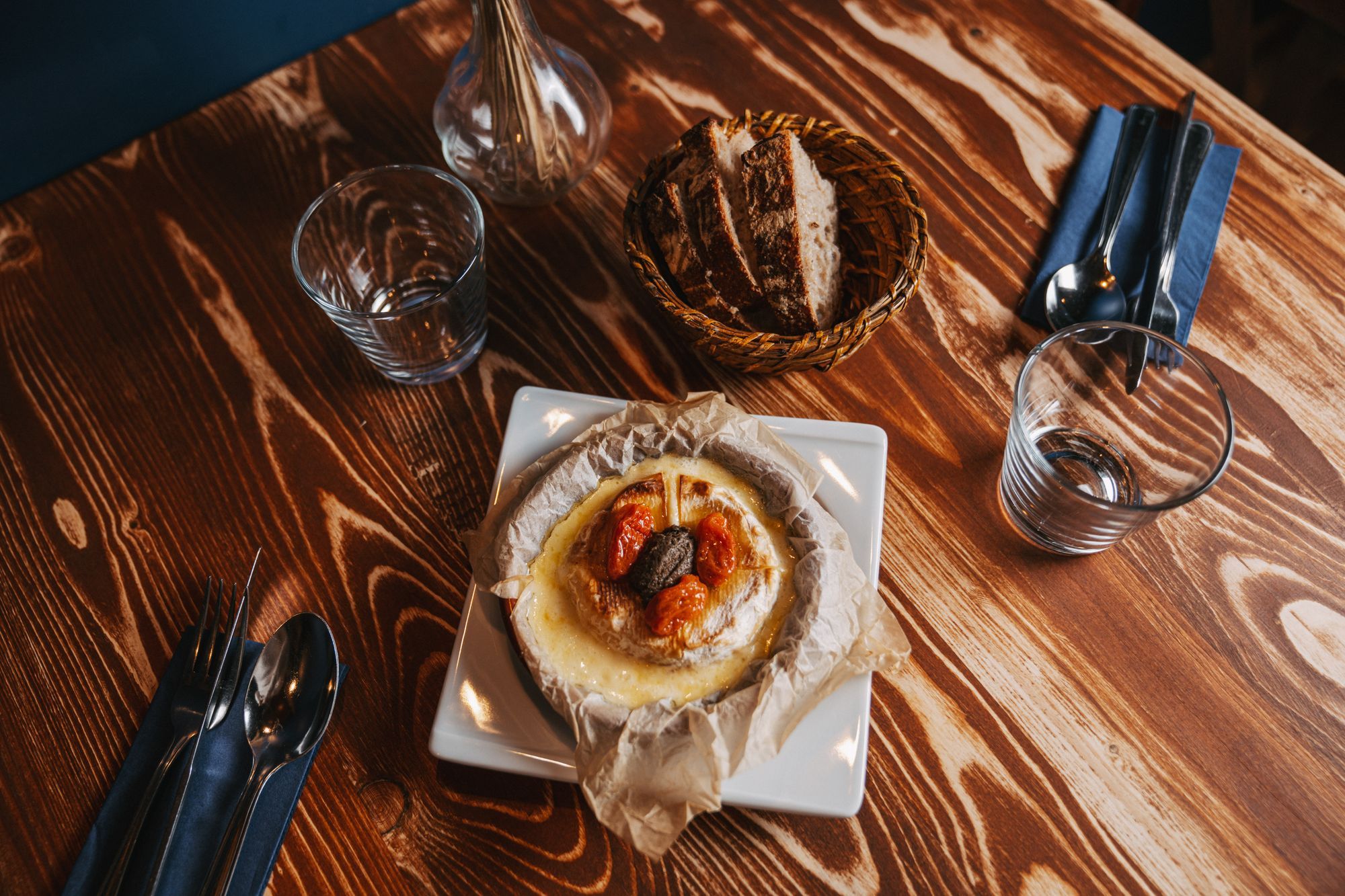You can never forget your roots. I think there is a lot to be gained from putting on your boots, seeing the world, and collecting a lot of useful and interesting things in your bag, but sooner or later, the past will speak. You have to go away to be able to miss what is otherwise familiar. To be homesick and to return to your sweet home. This is (also) what Iszkor is about, in Mályinka.
The wild landscapes of the Bükk are a popular destination for all nature-loving tourists. The winding serpentines between the mountains, the lush forest, and the many streams and waterfalls with all their flora and fauna, take you away from the noise of the city. These two sentences could have been taken from the introduction to a tourist brochure, but the truth is that it’s good to be here, to look for the common morel that has grown big in the bush, to listen to the self-conscious voices of the cows and sheep, or to taste the freshly caught trout, fried and crumbling.
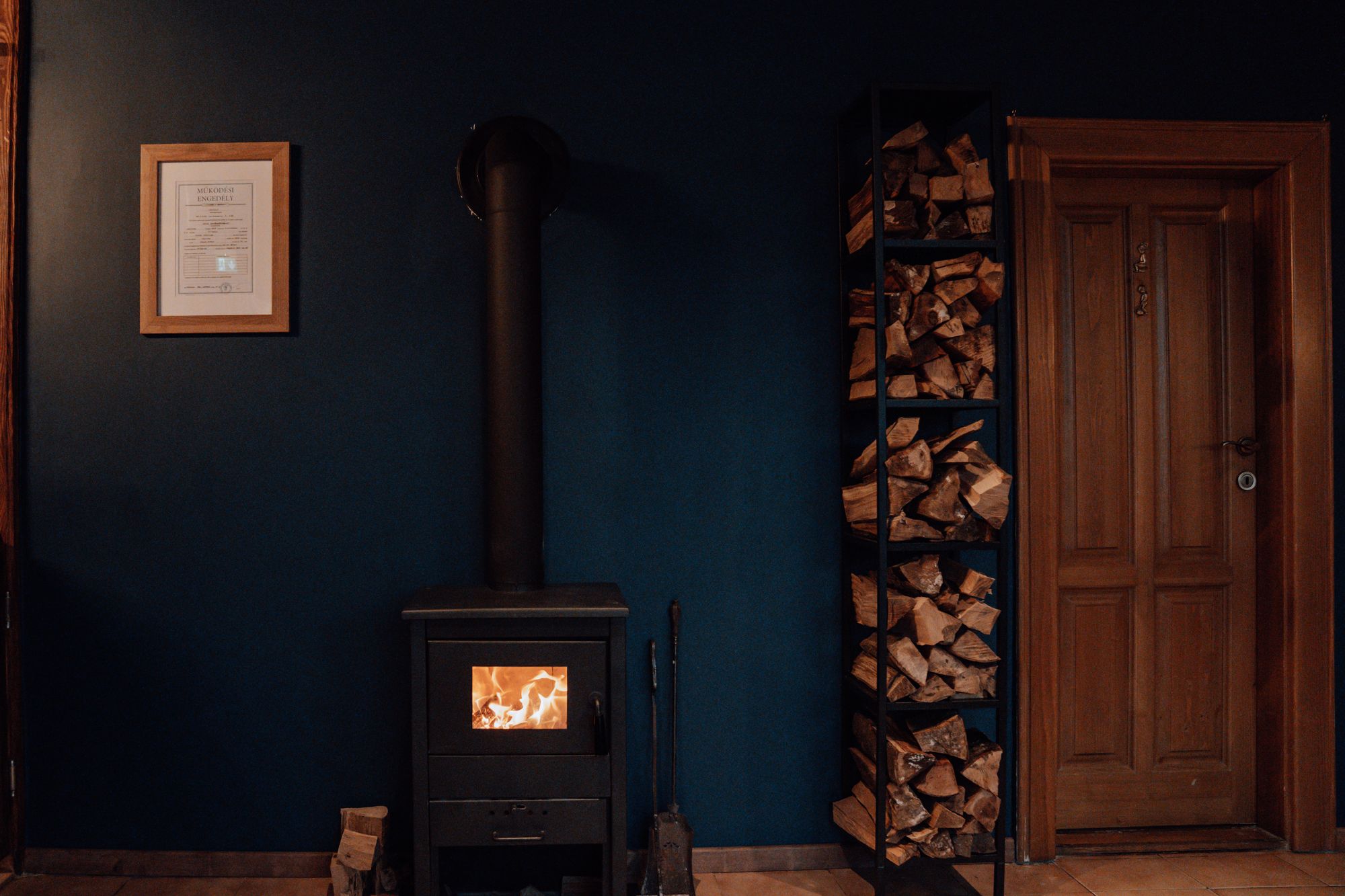
Of course, life is no fairy tale, people here struggle with the same daily challenges, those who can, look for work in a bigger city, but some stay and try to create something very real. And yet this region is not the Balaton Highlands, despite the tourist popularity of Lillafüred or Szilvásvárad, gastronomy is still in its infancy. One or two places are worth a trip (for example, there’s Macok Bistro in Eger, BoriMami in Gyöngyös or Pizza, Kávé, Világbéke, or Desszertem in Miskolc), but it is perhaps less on the map of emerging chef talents.
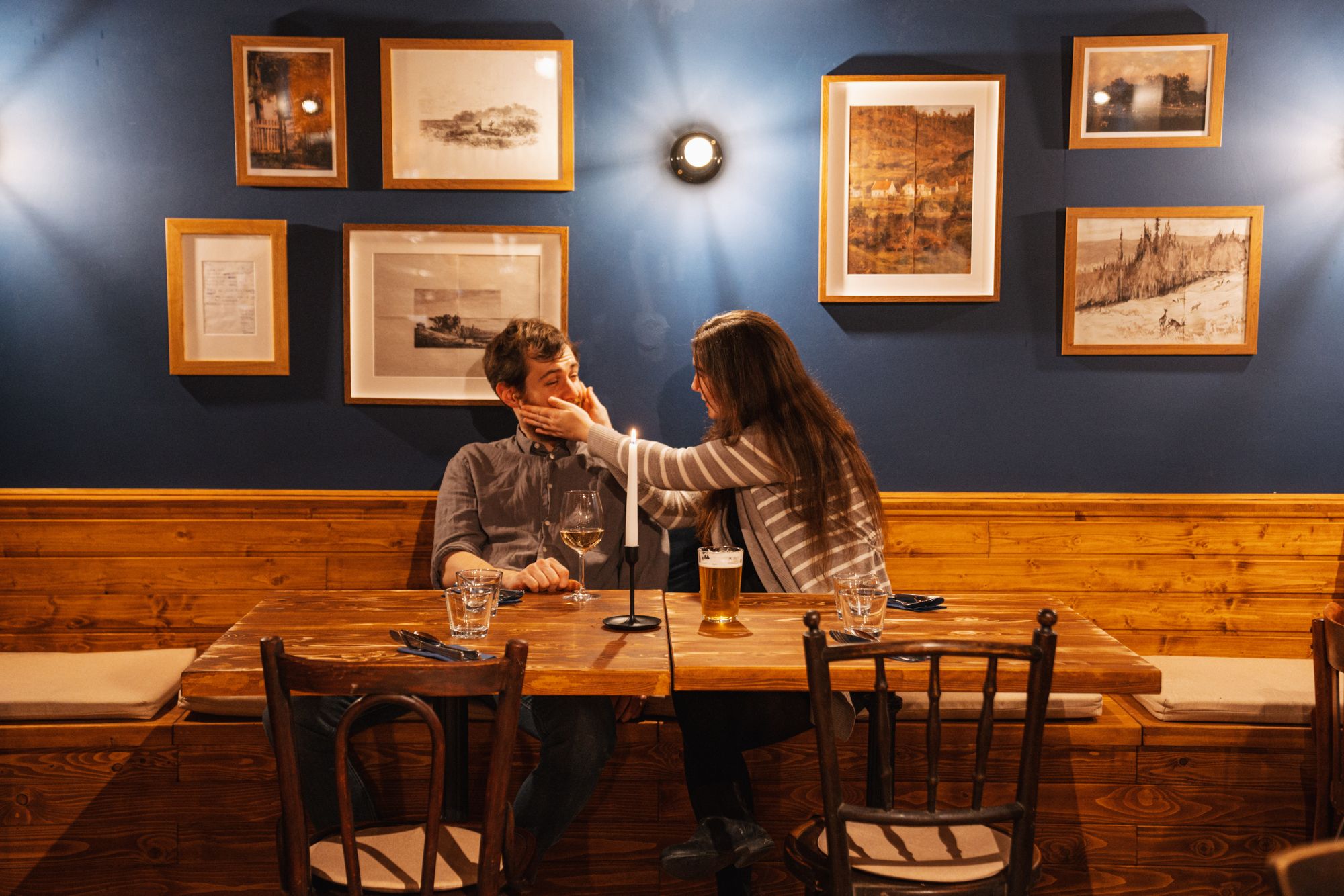
Ádám Pohner and his partner, Luca Kun A. came, or rather returned, to this environment. Ádám is one of the most promising members of the young generation of chefs, having previously worked at the Kistücsök and Platán Bistro restaurants, while at the age of 25, he reached the finals of the Bocuse d’Or, one of the pinnacles of the profession. Those who get here gain international attention and often get a boost to their careers. Then, alongside the technology-driven world of restaurants and the fast pace of competition, there was the other side: Mályinka. A small village far far away, where his family is from. He and Luca visited the area again and again, and when they saw the slightly run-down pub for sale in 2021, something spoke to them.
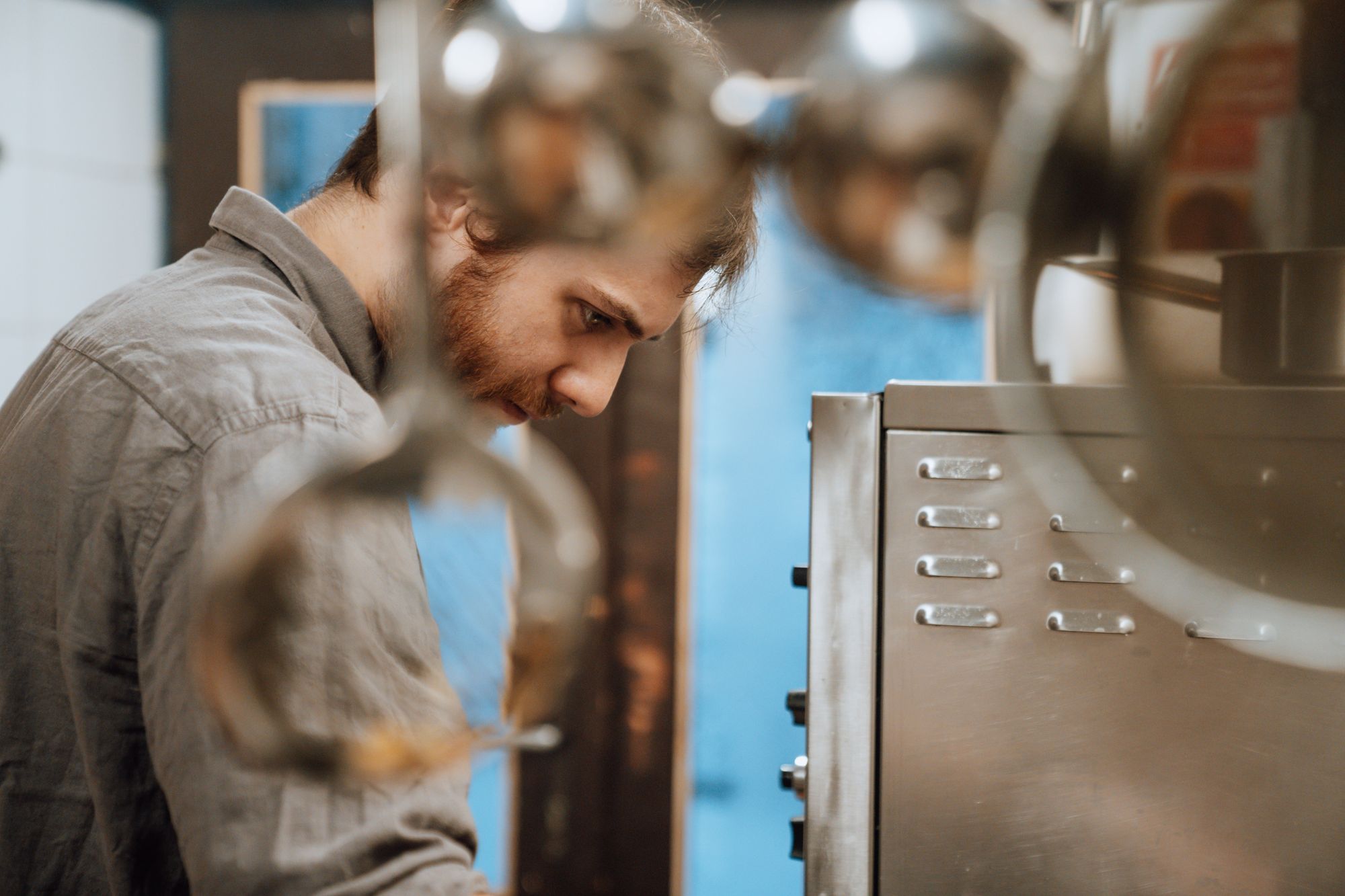
Ádám had been thinking about starting his own business for a long time but hadn’t found the space or time. But here, everything was available but nothing was ready—the story literally had to be rewritten. The family came, friends arrived and the two of them started to build Iszkor, step by step. The word ‘iszkor’ is the local name for the Sorbus tree, but the word carries a kind of magical atmosphere: it’s as if it were the hero of a folktale, someone who wanders around the area and if you catch a glimpse of them, you find treasure. It’s no wonder that the imagination takes flight because the decoration is also designed to do the same: instead of professionally composed mood boards, the inspiration for everything comes from the surroundings, the ingredients, and the people. ‘Slow food’ is not just an empty phrase, but a reality, because Ádám is standing in the tiny kitchen (now with a helper) and cooking with what he has. When he runs out, he cooks from other sources or improvises. And what he puts on the plate is at once plain yet full of twists and turns, but only changes the familiar food just enough to make us recognize it’s affecting us.
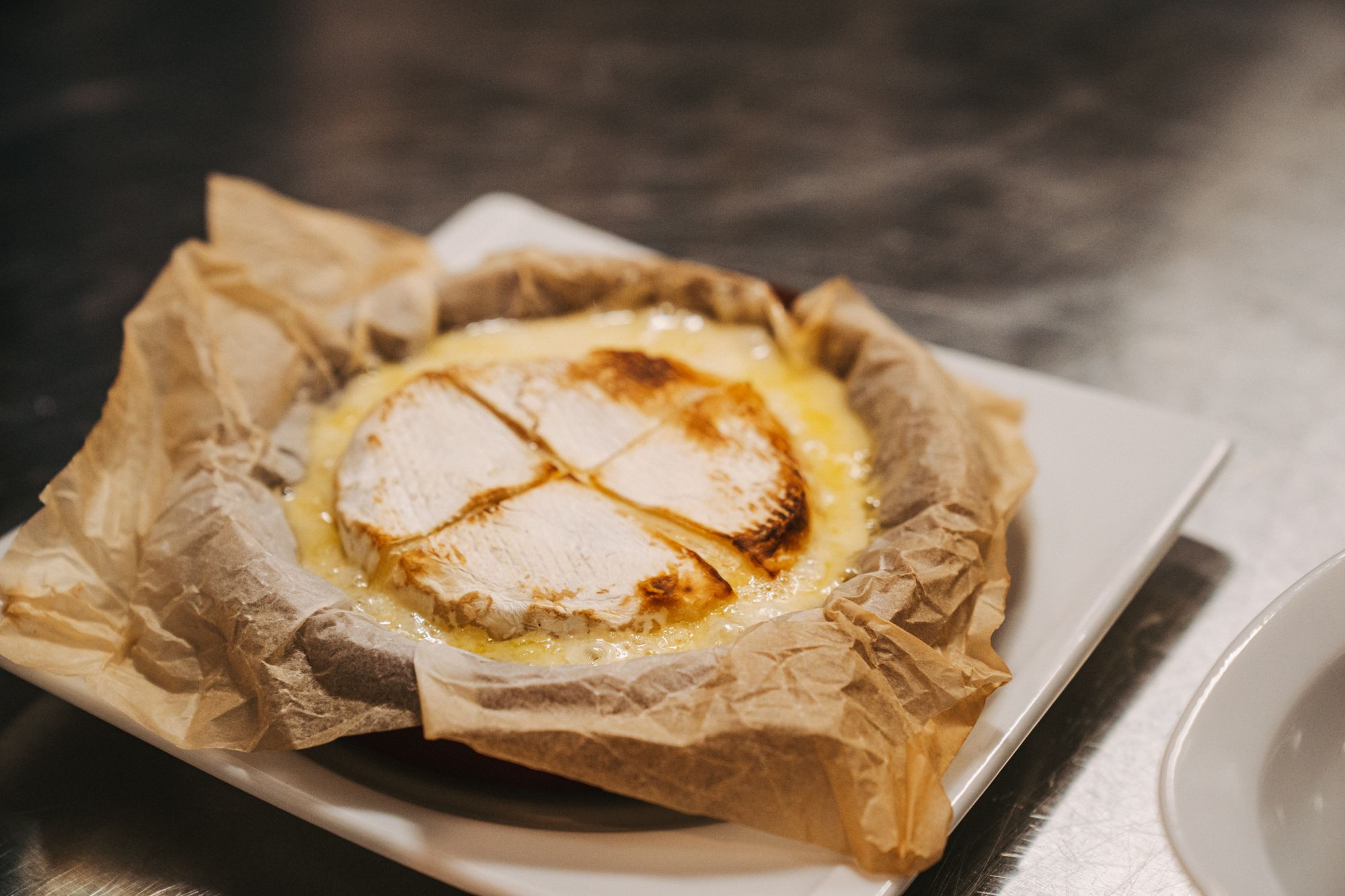
In this respect, Iszkor serves a purpose similar to the pub: it brings local people together. In fact, the concept was to make sure that most of the ingredients came from the local area, but not in a strict way. They refer to themselves as ‘ingredient kitchen’, which means that seasonal ingredients are always the backbone of the dishes. Since they don’t do much vegetable growing here, Boldizsár Horváth, founder of Farm2Fork, delivers to them every week, including peas, cabbage, and asparagus. At the same time, the region is particularly rich in fish and meat, with quail, Hortobágy mangalica, and deer meat on the menu, alongside trout from Lillafüred.
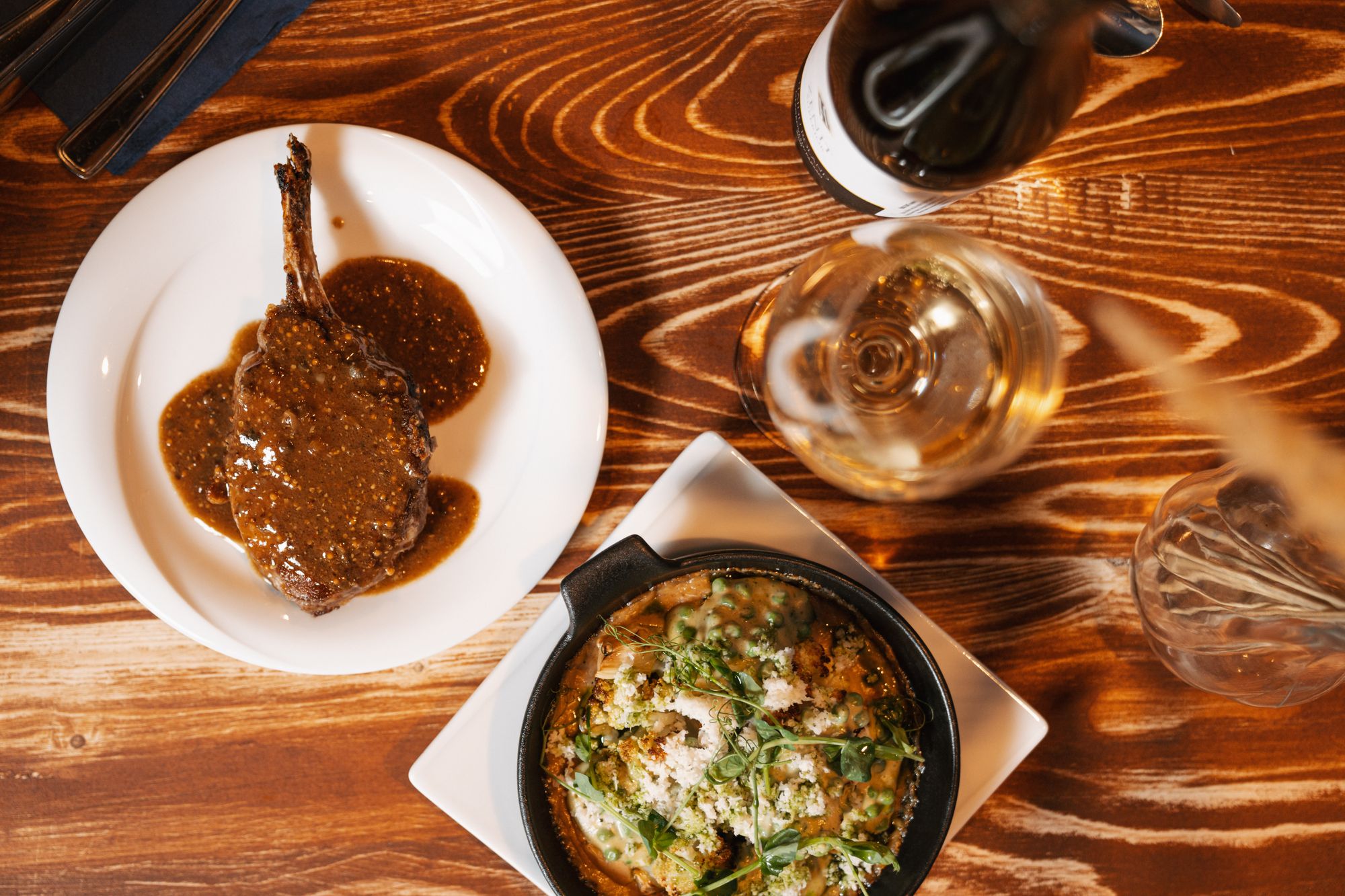
By appearing in the area, they also gave color to the northern Bükk countryside, and as the locals began to accept them, personal relationships started to flourish. It turned out that their gas fitter was a beef farmer, so they got premium beef, or they met cheese maker Tamás Sándor, who stayed in the area partly because of them. During the six months they were open, they were discovered by more and more people, but surprisingly, many of the regulars were from the area. Like the restaurant, it’s how the team has been able to grow step by step, with Ildikó and Attila from next door joining the service, holding the fort when everything else becomes too much. They also made an effort to get to know the neighborhood, if need be, with homemade pálinka or by having Luca join the mass every Sunday in the village chapel.
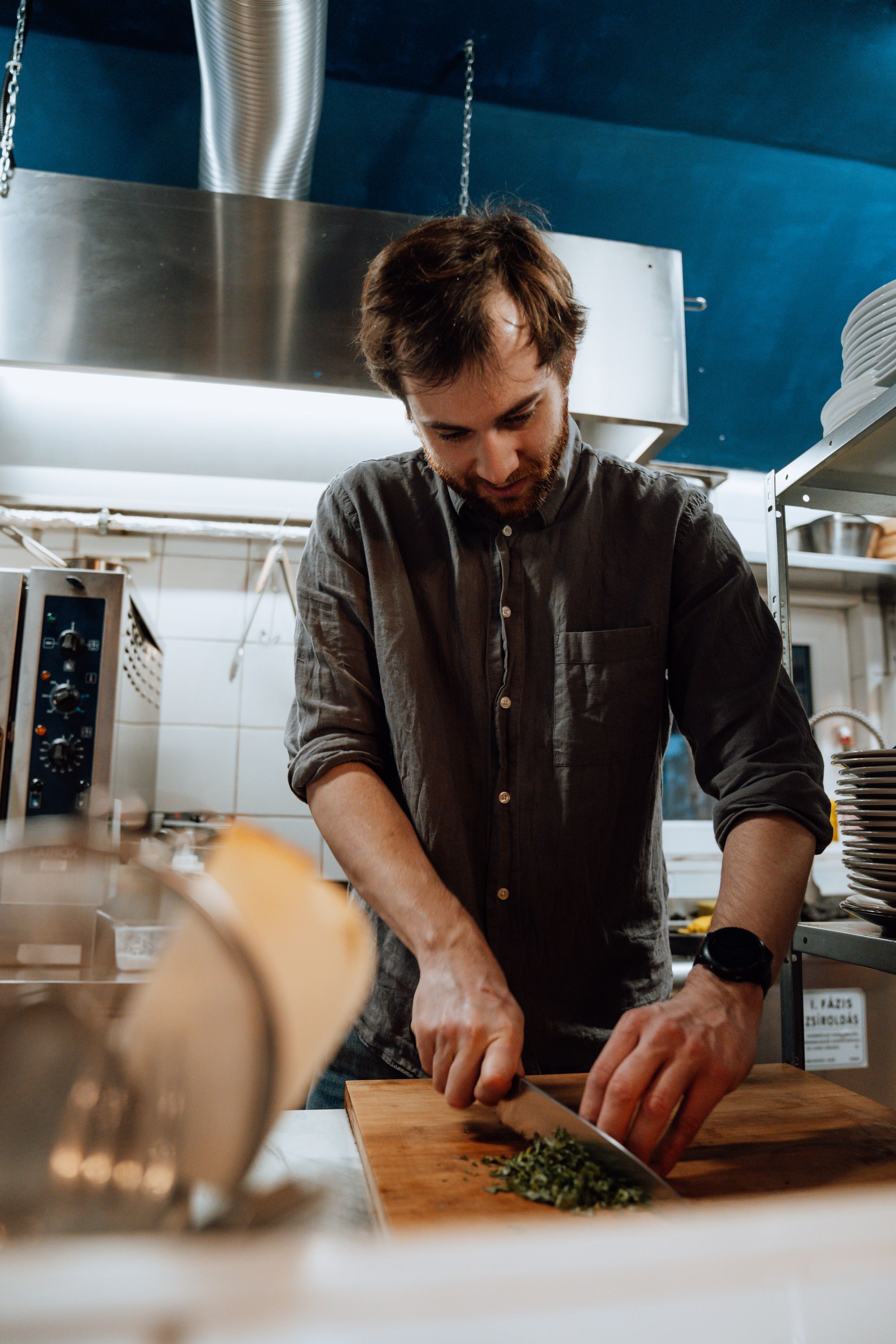
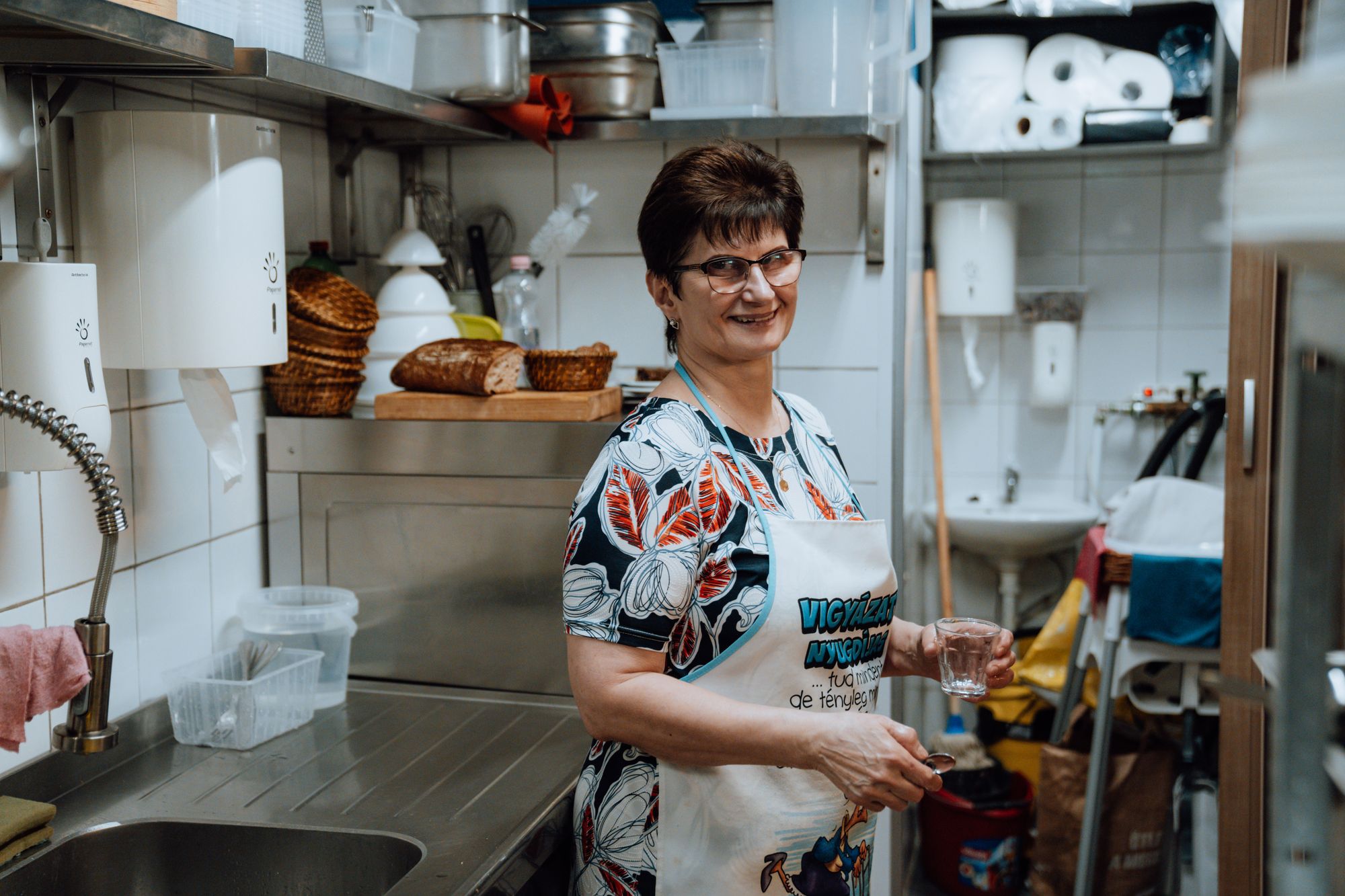
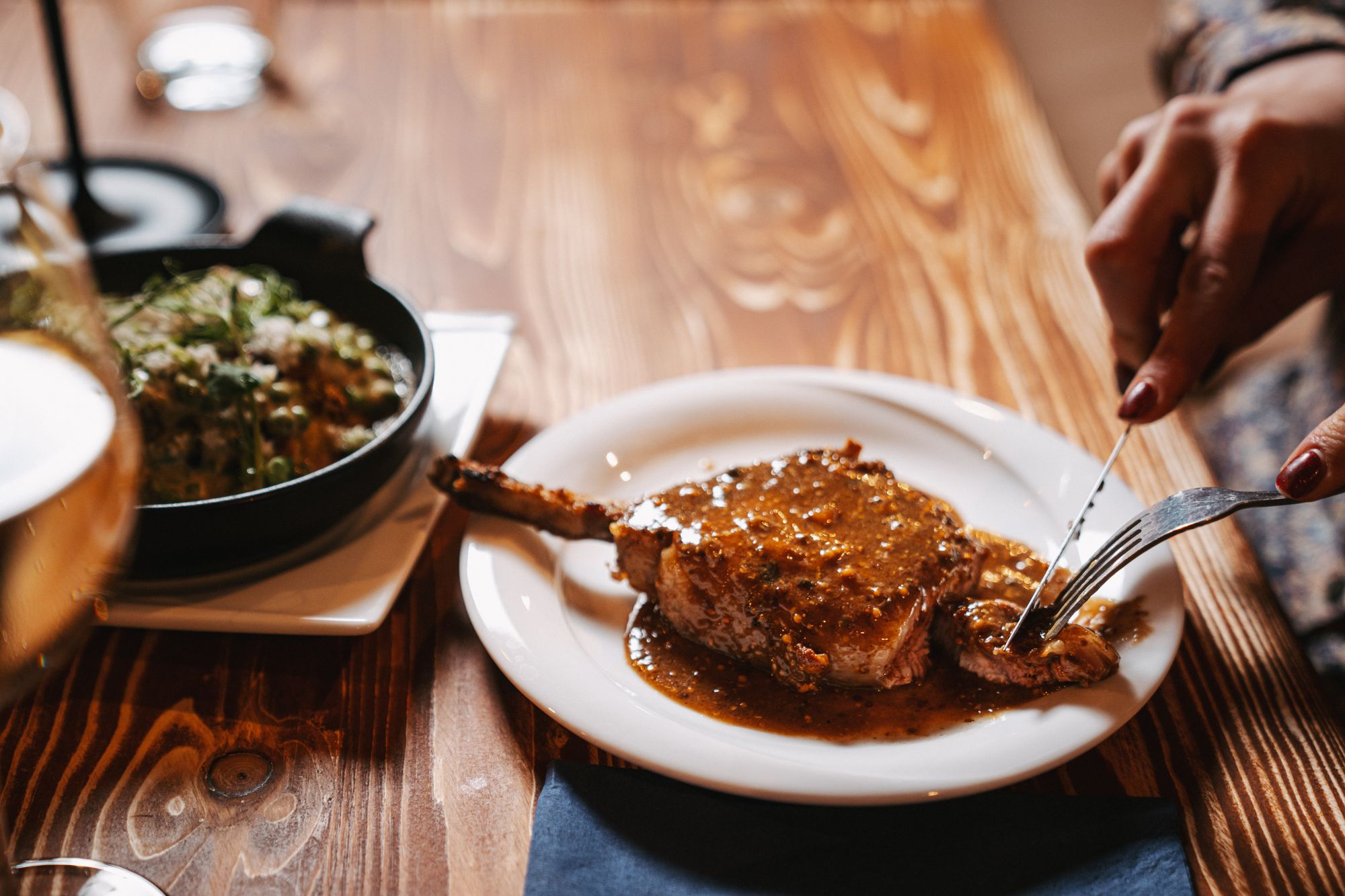
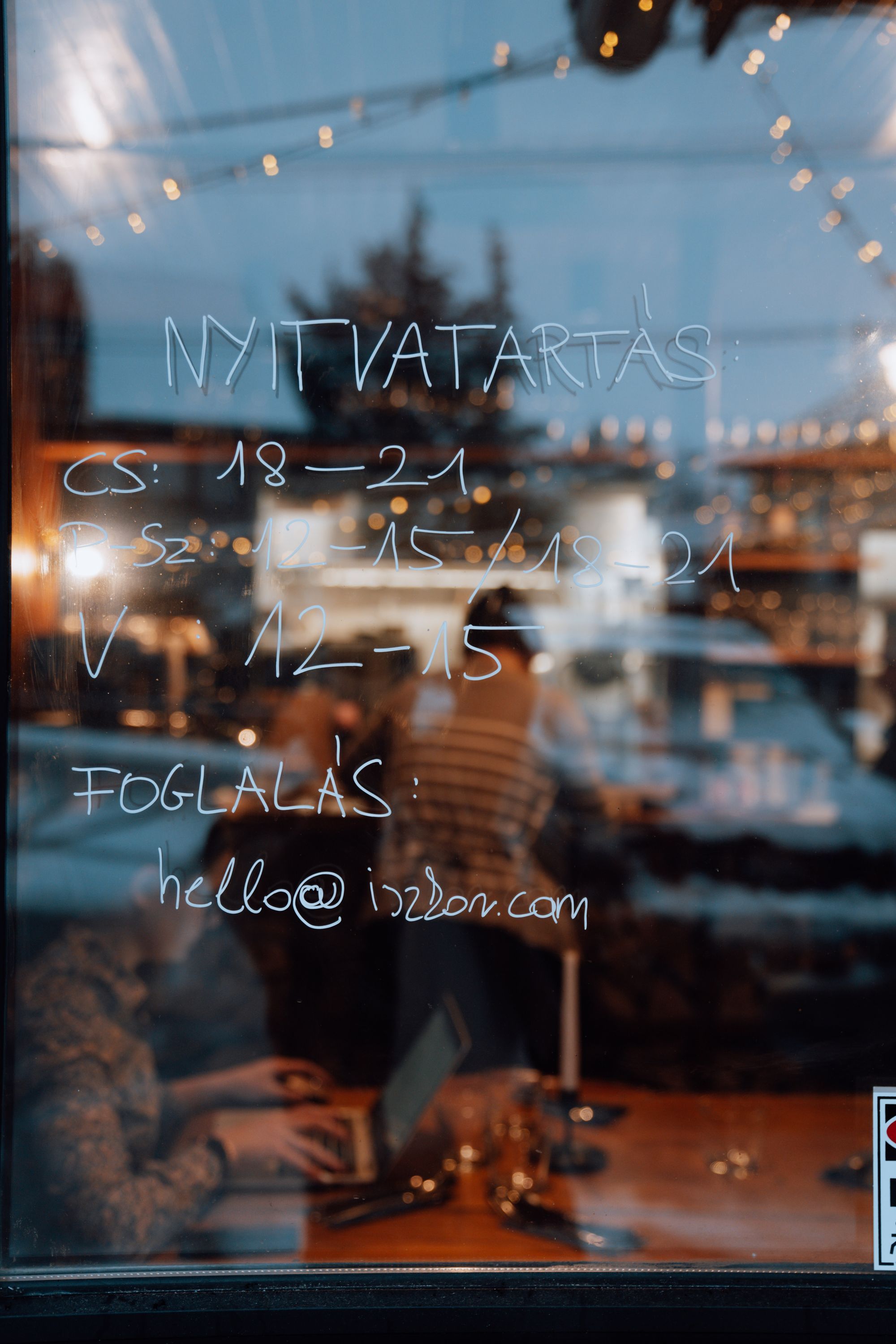
And even though the Iszkor is small (it can seat up to 30 people on the four days it is open), it gives you more to do. On Mondays and Thursdays, business is conducted, purchases are made, and food is planned, on Wednesdays, the food is cooked and on Thursdays the doors open. Logistics are very important, because you can’t just pop out to the shop when you’re out of something, and they talk to several producers months in advance about what they’ll need. Now that spring is here, they’ve also started to set up the terrace, and the outdoor barbecue will be even more prominent: it will both take the pressure off the indoor kitchen and show the character of the local food. Simplicity, honesty, authenticity—these are perhaps the best words to describe it. It is difficult to write about the food because by the time the reader gets there, the menu is likely to be different, but the main outline may remain. The wild boar croquette with saffron aioli, for example, was around before the bistro, with béchamel holding the venison together, resulting in an incredibly creamy, tarragon-flavored bite.
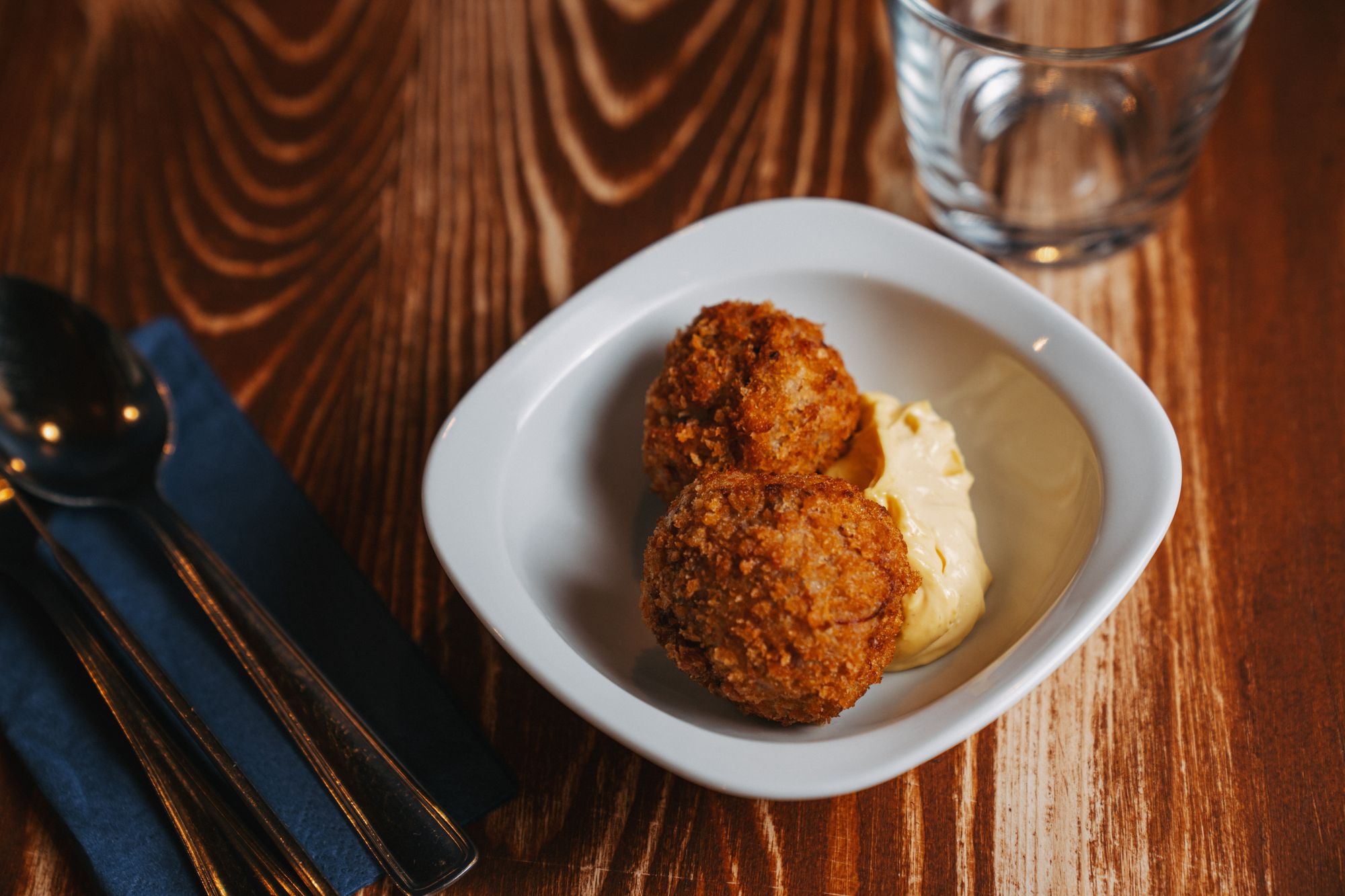
The grilled Bükk camembert is something we can actually make at home, but the Iszkor version is a nice gesture towards the simplicity of handmade cheese, unashamedly devoured with sourdough bread. The side dishes that accompany the soft meat are complete in their own right, but perhaps my favorites of the whole tasting were the fresh green peas and the almost soft grilled cabbage—the latter, by the way, is what stole Luca’s heart back in the day. The various dressings and jus are not intrusive, but appear everywhere, completing the story, but even in the slightly profane, suitably homemade form of the cheesecake dessert in crumble form, there is something very likable.
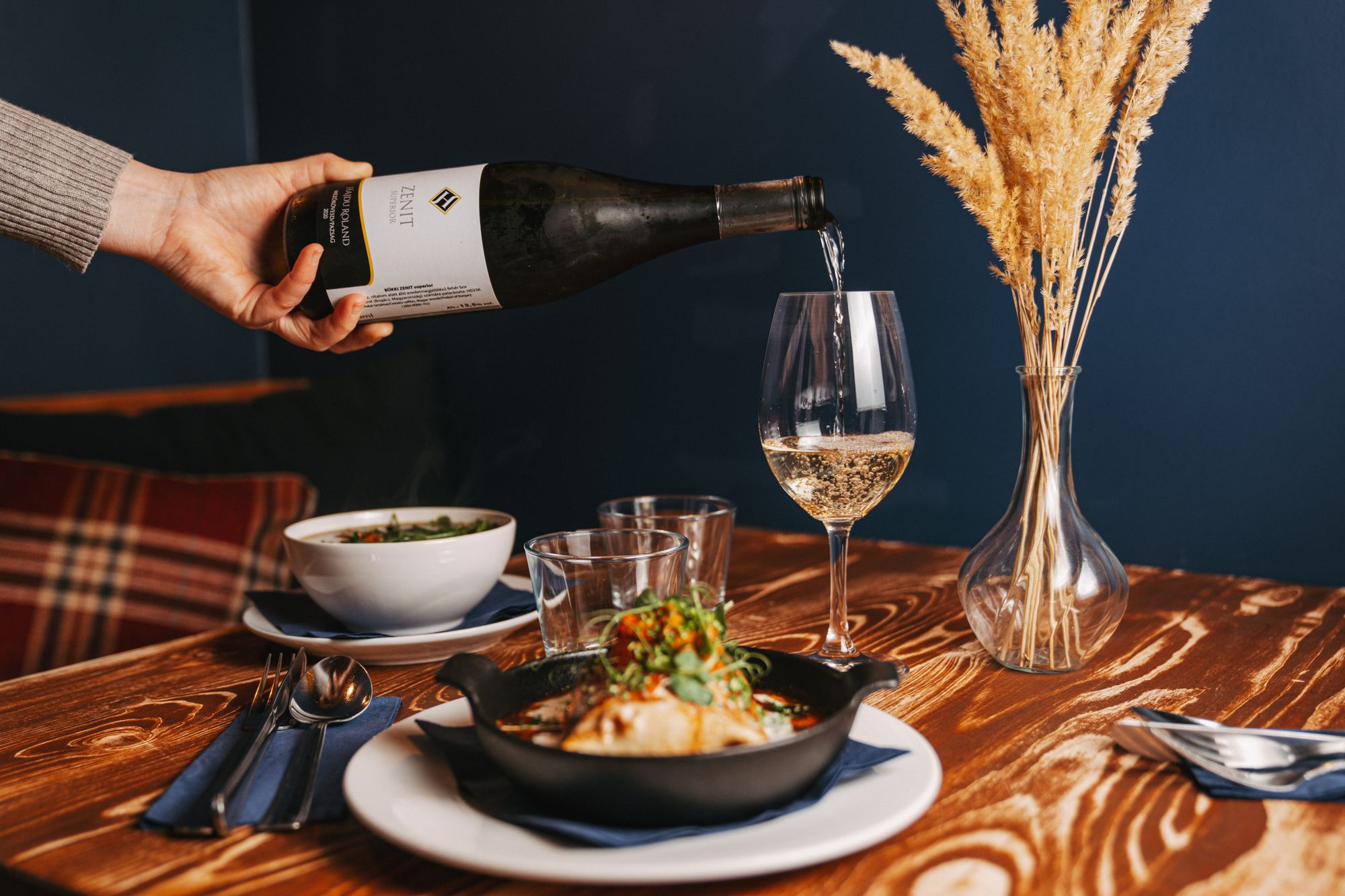
I have no better thought than what I wrote above: that everything is so real. When something unexpected happens or when, between services, the team sits down for a big plate of cheese noodles or goes to the creek for a break. Or when Luca, like a good marketing person, hangs out in the kitchen, capturing the moments that Ádám, sometimes a little tense, witnesses. I imagine what it would be like to have a restaurant, but maybe I’m too late. Now I think Iszkor is well on the way to perfecting this.
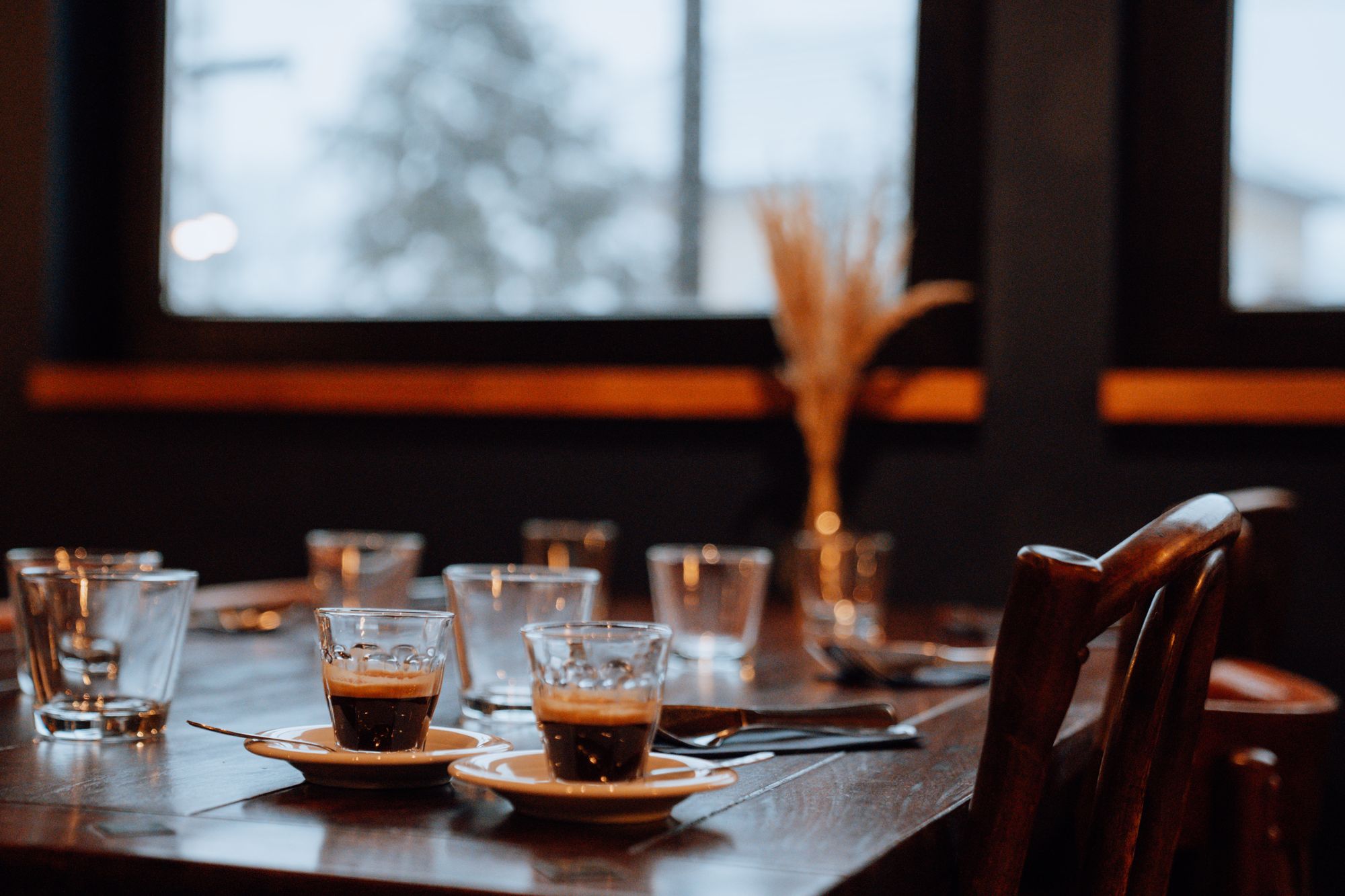
Iszkor | Web | Facebook | Instagram
Photos: Tamás Varga









